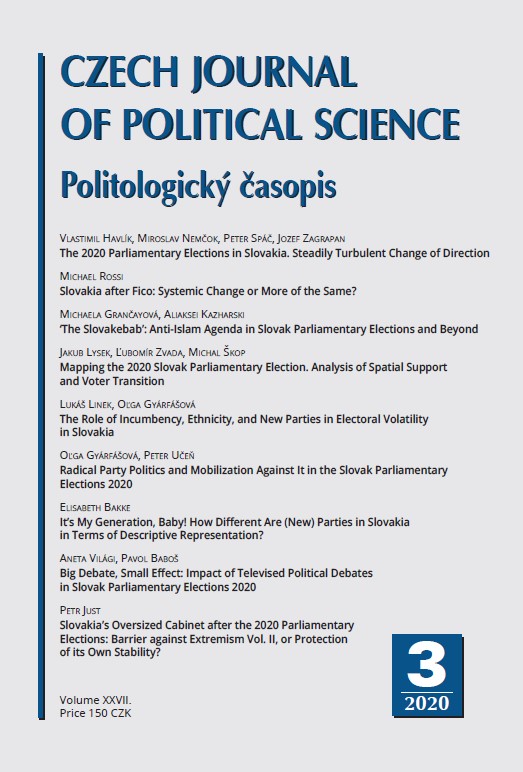Slovakia’s Oversized Cabinet after the 2020 Parliamentary Elections: Barrier against Extremism Vol. II, or Protection of Its Own Stability?
Slovakia’s Oversized Cabinet after the 2020 Parliamentary Elections: Barrier against Extremism Vol. II, or Protection of Its Own Stability?
Author(s): Petr JustSubject(s): Politics / Political Sciences, Social Sciences
Published by: Masarykova univerzita nakladatelství
Keywords: Slovakia; elections; party; government; coalition
Summary/Abstract: This article deals with one of the major political consequences of parliamentary elections in every parliamentary regime – the process of government formation. It focuses on the formation of the coalition government following the 2020 parliamentary elections in Slovakia, in the context of both pre-election developments as well as the main challenges and appeals of contemporary politics in general – the rise of far-right political parties. Its aim is to identify the coalition strategies presented before the elections of political parties and movements that had a theoretical chance of being elected to Parliament. Special emphasis is placed on the definition by the other political parties and movements of the long-time ruling party Smer and the far-right party Our Slovakia. The analysis continues with the post-election government formation process, the classification of the established coalition, including the allocation of cabinet portfolios, assessment of the similarities and differences of coalition parties, and factors that could possibly cause both instability as well as stability. It concludes that the joint definition by the new ruling parties and movements of Smer and Our Slovakia will, at least for some time, serve as a unifying factor keeping the coalition together. However, the coalition’s stability will be under almost constant pressure coming from both relations between coalition parties and the possibility of internal conflicts within the coalition parties and movements. The article argues that the establishment of the surplus majority coalition might – besides the official justification for it – serve as a protection against government destabilization.
Journal: Politologický časopis - Czech Journal of Political Science
- Issue Year: XXVII/2020
- Issue No: 3
- Page Range: 388-414
- Page Count: 26
- Language: English

